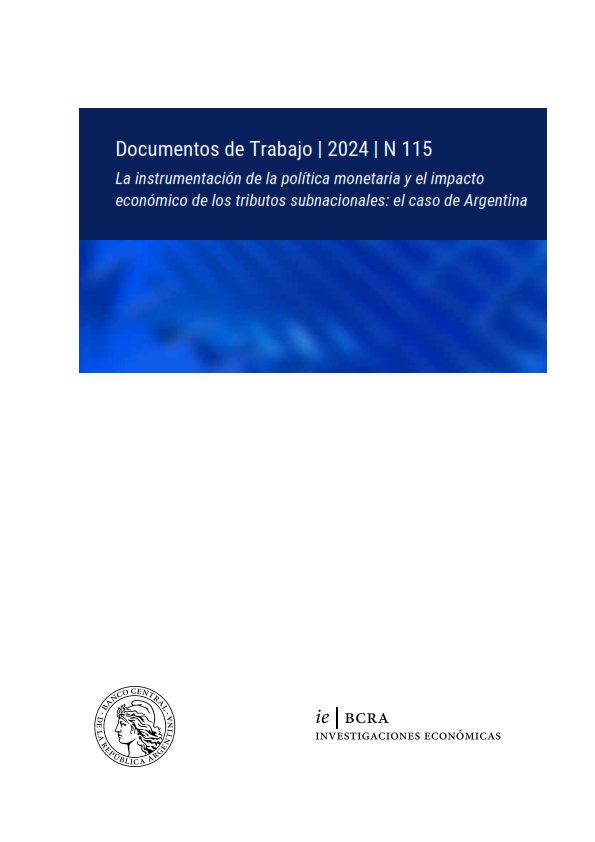The implementation of monetary policy and the economic impact of subnational taxes: the case of Argentina
Working papers | 2024 | N 115
Keywords:
monetary policy, subnational taxes, argentinaAbstract
Monetary policy implementation in a federal country requires both vertical (national and subnational governments) and horizontal (between subnational jurisdictions) institutional coordination. The optimal centralized monetary policy is blind and potentially nonheterogeneous at the subnational level. In this context, the Technical Note analyzes the economic implications resulting from the unconstitutional claim presented by the BCRA before the Supreme Court of Justice disputing the decision by some provinces of levying a provincial turnover tax on financial instruments used for monetary regulation. Subnational fiscal powers, including taxes applied to the financial intermediation affected BCRA monetary policy implementation, generating a negative externality for all the provinces. Additionally, the reaction of banking entities affected both the passive (interest rate on deposits) and active margins (interest rate and quantity/quality of credit), distorting monetary regulation and reducing the monetary policy rate impact on savings, credit, investment and aggregate demand. The quantitative approximation indicates that tax effectively affected the monetary policy signals implicit in the rates set by the monetary authority as well as the volume of financial intermediation.


